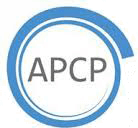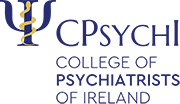Marriage, as a deeply personal and significant relationship, has its highs and lows. As time passes, many couples inevitably face challenges. Whether it’s the strain of daily life, differing expectations, or unexpected obstacles, no marriage is entirely immune to difficulties. While many couples attempt to navigate these challenges on their own, a growing number of them in Ireland are turning to marriage counselling to help rebuild or strengthen their relationships. In recent years, marriage counselling has become increasingly common across the country, with more couples seeking professional help to overcome relationship hurdles.
In this article, we’ll explore the reasons why marriage counselling is so prevalent in Ireland, examining the various factors that contribute to couples turning to therapy for assistance in resolving their issues and keeping their relationships intact.
1. The Growing Acceptance of Therapy in Irish Society
Historically, mental health and counselling services were not widely discussed in Ireland. For years, societal attitudes towards mental health remained somewhat conservative, with many people reluctant to seek help for fear of social stigma. However, in recent decades, there has been a noticeable shift in attitudes towards mental health, with a growing acceptance of therapy and mental health services in general.
This shift has extended to marriage counselling as well. Couples are increasingly recognising that relationships, like any other aspect of life, can benefit from professional support. They understand that seeking help doesn’t signal failure but rather demonstrates a commitment to improving and strengthening their relationship.
As the taboo around therapy continues to lessen, more couples in Ireland feel comfortable seeking marriage counselling to resolve their issues. The stigma surrounding counselling has diminished, allowing people to view it as a valuable resource for addressing relationship problems rather than a last resort.
2. Negative Communication and Growing Frustrations
One of the most common issues couples face in long-term marriages is negative communication. Over time, couples can fall into negative patterns of communication that create emotional distance, resentment, and frustration. The way couples speak to each other can have a profound effect on the health of the relationship. In some cases, negative communication patterns arise unintentionally, but the result is the same: emotional disconnection.
In Ireland, many couples come to therapy to address negative communication habits. Arguments may become more frequent, hurtful words are exchanged, and misunderstandings can spiral into bigger issues. Over time, these negative patterns may build up to the point where partners no longer feel heard or respected by each other.
Marriage counselling helps couples develop healthy communication skills, fostering empathy and understanding. Through therapy, couples can learn how to express their feelings in a constructive manner, leading to more productive conversations and fewer unnecessary conflicts. These sessions also help individuals become more aware of their own communication styles, enabling them to make positive changes and improve how they interact with their partner.
3. Infidelity and Trust Issues
Adultery, while heartbreaking, is unfortunately a reality that many couples in Ireland face. Infidelity is a complex issue that often stems from deep emotional, psychological, or relational challenges. It can cause a great deal of pain, mistrust, and insecurity in a marriage, and in many cases, it leads to the breakdown of the relationship.
However, in Irish society, it is not uncommon for couples to choose reconciliation rather than separation after an affair. Many couples seek therapy as a way of addressing the underlying issues that led to infidelity and working towards rebuilding trust. Marriage counselling provides a safe and supportive environment where both partners can explore the reasons behind the affair, whether it’s unmet emotional needs, lack of intimacy, or deeper individual issues. This exploration can help uncover the root causes of the betrayal and pave the way for healing.
A key aspect of marriage counselling after infidelity is rebuilding trust. Trust is the foundation of any relationship, and once it has been broken, it takes time and effort to restore it. Therapists work with couples to guide them through this delicate process, encouraging honest and open communication, fostering forgiveness, and providing strategies for rebuilding the emotional connection.
While healing from infidelity is often a challenging journey, many couples in Ireland find that therapy helps them navigate these difficult waters and emerge stronger as a result. Counselling offers couples the tools they need to process their emotions, heal their wounds, and work towards forgiveness and reconciliation.
4. The Lack of Passion and Romance Over Time
Another common issue faced by couples in Ireland is the fading of passion and romance in their marriage. In the early days of a relationship, there is often a sense of excitement and novelty, but as the years pass, the pressures of daily life, raising children, and maintaining a household can cause the romantic spark to diminish. Many couples find themselves stuck in a rut, where their relationship feels more like a routine than an exciting partnership.
As a result, couples may experience frustration, dissatisfaction, or a sense of emotional distance. For some, this lack of passion leads to feelings of loneliness or yearning for emotional or physical intimacy elsewhere. This situation can create tension, resentment, and a sense of disconnection between partners.
Marriage counselling can provide couples with the tools to reignite the passion in their relationship. Therapists work with couples to help them rediscover the emotional connection that initially brought them together. Through open and honest communication, couples can share their desires, fears, and unmet needs. Therapy sessions also provide a safe space to explore and improve intimacy, whether it’s emotional, physical, or both.
Couples therapy can also help partners understand the importance of maintaining their romantic connection and prioritising quality time together. Counsellors may recommend exercises or strategies to enhance emotional and physical intimacy, as well as techniques to manage stress, which can all contribute to revitalising a relationship.
5. Parenting and Family Life Stress
Parenting and family life can add significant stress to a marriage, especially when couples have children. The challenges of raising kids, managing household responsibilities, balancing work commitments, and navigating the emotional needs of each family member can be overwhelming. When a couple’s primary focus shifts to the demands of family life, it’s easy for the relationship between partners to take a backseat.
In Ireland, many couples turn to marriage counselling as a way to address the strain that parenting and family life have put on their relationship. Therapy sessions provide a space for couples to discuss the pressures they’re facing, from differences in parenting styles to the difficulty of balancing work and family commitments. Counsellors can help couples find ways to support one another more effectively, strengthen their partnership, and better manage stress.
Couples who seek marriage counselling in the midst of parenting challenges can often find that they are not alone in feeling overwhelmed. Therapy can foster a sense of understanding and solidarity, allowing partners to approach their challenges as a team rather than as adversaries.
6. Financial Strain and Life Pressures
Financial difficulties are a major source of stress for many couples, and Ireland is no exception. The cost of living, mortgage payments, job insecurity, and other financial pressures can cause tension between partners. When couples struggle to manage their finances, disagreements may arise, and the emotional toll of money problems can create a sense of instability within the marriage.
Marriage counselling can provide couples with the tools to handle financial stress in a healthy way. Therapists can help partners communicate openly about money matters, address underlying fears or anxieties, and develop strategies for financial planning. Couples who seek therapy for financial strain often leave with a greater sense of unity and a clearer understanding of how to support one another in difficult times.
7. Seeking Personal Growth and Development
In some cases, couples may seek marriage counselling not because they are experiencing a crisis but because they want to improve their relationship. As individuals grow and change over time, their needs and expectations may evolve. Marriage counselling can help couples navigate these changes and ensure that they continue to grow together as a couple.
Therapy provides a space for couples to reflect on their relationship, identify areas for improvement, and set new goals for their partnership. It also helps couples understand the importance of nurturing personal growth while maintaining a strong and supportive connection with their partner. Couples who pursue therapy for personal development often report a deeper sense of satisfaction and fulfilment in their relationship.
8. A Culture of Seeking Help and Support
Finally, it’s important to acknowledge the broader cultural context in which marriage counselling has become increasingly common in Ireland. Irish society has witnessed a cultural shift towards seeking help and support in times of need. With mental health services becoming more accessible and less stigmatized, many people are embracing therapy as a proactive tool for improving their lives and relationships.
In recent years, there has been an increased emphasis on mental health awareness and emotional well-being in Ireland. Couples who once might have suffered in silence are now more likely to seek professional help when they face challenges in their marriage. This cultural shift reflects a broader societal recognition that relationships require effort, understanding, and sometimes external support to thrive.
Conclusion: The Growing Importance of Marriage Counselling in Ireland
Marriage counselling has become increasingly common in Ireland due to a combination of factors: the growing acceptance of therapy, the pressures of modern life, and the desire for personal growth and improved relationships. Couples in Ireland recognise the importance of seeking professional support when faced with challenges, and therapy provides a valuable space to heal, grow, and strengthen their bonds.
Whether addressing communication issues, rebuilding trust after infidelity, or reigniting the spark in a relationship, marriage counselling offers couples the tools they need to navigate life’s challenges together. As societal attitudes continue to evolve and more couples seek help, marriage counselling will likely remain a vital resource for couples looking to build healthier, stronger, and more fulfilling relationships.












